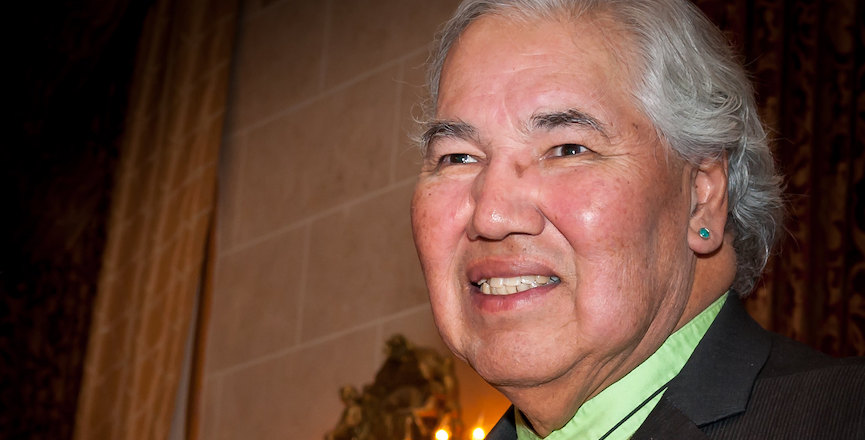The documentary Honour to Senator Murray Sinclair will make its world premiere at the 2021 Toronto International Film Festival (TIFF) as part of its Celebrating Alanis retrospective.
A member of the Abenaki Nation, Alanis Obomsawin is Canada’s most prolific and honest documentary-filmmaker and her latest work is nothing short of inspiring. Obomsawin shares the powerful speech made by the former senator and chair of the Truth and Reconciliation Commission (TRC) Murray Sinclair when he accepted the World Peace Award from the World Federalist Movement Canada in 2016.
Obomsawin artfully intersperses Sinclair’s talk with the heart-wrenching testimonies of Iris Nicolas, Victoria Crowchild, James Yellow Knee, Paul Voudrach, Ida Embry and Saul Day — all of whom were imprisoned at residential schools as children.
As the chair of the TRC, Sinclair was a key figure in raising global awareness of the atrocities meted out through Canada’s residential school system. The TRC grew out of the residential school settlement agreement. It was largely controlled by the Harper government, who insisted that only the term cultural genocide be included in the report. It was difficult to get survivors to share their experiences.
Sinclair, who is Anishinaabe and a member of the Peguis First Nation, inherited a TRC that was in chaos. One year later, in 2010, the commission held its first national event in Winnipeg, Manitoba. The more than 20,000 people in attendance listened to the traumas endured by residential school survivors. Church and government leaders were encouraged to speak to their audiences providing the validity some Canadians needed to accept the horrific treatment children endured. In June 2015, the final report — with 94 Calls to Action — was released.
Sinclair asks us to look to the United Nations Declaration on the Rights of Indigenous Peoples (UNDRIP) to create the framework for reconciliation. Adopted by 144 nations on September 13, 2007, Canada, the U.S., Australia and New Zealand voted against it. While Canada endorsed UNDRIP in 2010, it did not adopt it until May 2016, and UNDRIP is still not legally binding in Canada. Sinclair points out that some of the rights upheld by UNDRIP have already existed in Canada, having been put in place by the Royal Proclamation of 1763, which, among other things, prevented the government from declaring outright war on Indigenous nations. Instead, the Canadian government used legislation to wage its war.
Seven generations of stolen children were imprisoned in residential schools. However, Sinclair points out the public school system also had devastating effects on Indigenous children. There, they were treated as less than. Curriculums continue to omit Indigenous contributions to the history of this country, cultivating an air of superiority in non-Indigenous children. As Sinclair sagely observes, reconciliation will take generations to achieve.
With determination, wisdom and kindness, Sinclair remains steadfast in his belief that the path to actual reconciliation between Indigenous and non-Indigenous people requires understanding and the acceptance of often difficult truths about Canada’s past and present. He leaves Canadians with the challenge to choose one Call to Action and do what you can to make it happen.
Honour to Senator Murray Sinclair reminds us to honour the lives and legacies of the tens of thousands of Indigenous children taken from their homes and cultures, and leaves us with a profound feeling of hope for a better future.
It premieres at TIFF on September 14 with screenings in-person at 1 p.m. and digitally at 3 p.m.
Doreen Nicoll is a freelance writer, teacher, social activist and member of several community organizations working diligently to end poverty, hunger and gendered violence.




